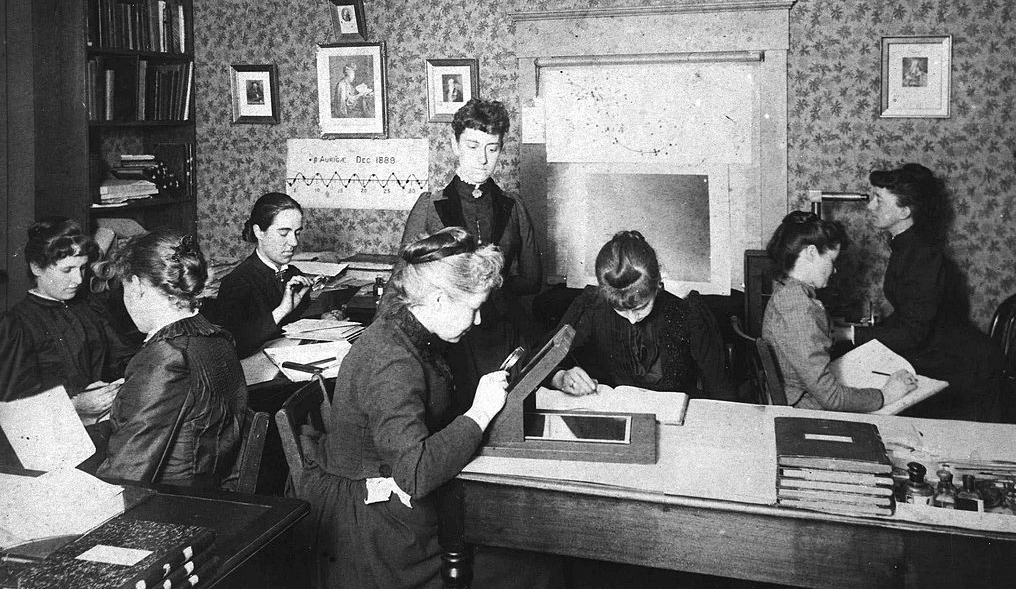
‘Gender Studies Show that Men and Women Have the Same Abilities’
In her four years at HSE University, Anna Ivanova has gone from teaching freshman classes to conducting an original course on autobiographical memory. She devotes a great deal of time to teaching while also finishing her dissertation and seeing patients as a practicing psychologist. In this interview with HSE University Agemates, Ms. Ivanova spoke about gender studies, her first impressions of her department, and the benefits of general education courses.

What Does the Lens of Gender Reveal?
In June, faculty members from HSE’s School of Cultural Studies, the School of Philosophy, and the Poletayev Institute for Theoretical and Historical Studies in the Humanities met with colleagues from the University of Pittsburgh (USA) and a Russian art historian to participate in a round table on the importance of gender studies in the humanities. The researchers discussed questions such as what historians, philosophers, and historians can achieve when approaching their fields of study from the standpoint of gender studies, and what the state of gender studies is in contemporary Russia and abroad.

Gender Inequality in Academia
In Russia, women earn about 70% of what men earn in wages. In the academic sector, this gap is smaller. However, although women make up a majority at universities, wage gaps between the two genders still persist. To find out why this is the case, IQ.HSE spoke with Victor Rudakov, Research Fellow at the Institute of Institutional Studies.
.jpg)
How Equality Started in Research
Legally, the 1917 revolution solved the gender issue in the Russian academic community. The doors to the profession opened for women, but a ‘glass ceiling’ remained. Ekaterina Streltsova and Evgenia Dolgova studied who it affected and why. This study is the first to present a socio-demographic analysis of the female academic community in Moscow and Leningrad during the early Soviet era.

How Gender Inequality Is Reproduced on Social Media
Researchers from Higher School of Economics analyzed 62 million public posts on the most popular Russian social networking site VK and found that both men and women mention sons more often than daughters. They also found that posts featuring sons receive 1.5 times more likes. The results have been published in the Proceedings of the National Academy of Sciences of the United States of America.

Clearly Defined Roles for Girls: How Kindergartens Serve as Gendergartens
Sociologists at HSE showed that preschool education has its own hidden curriculum: kindergarten teachers transmit social norms to children, including conservative ideas of femininity and masculinity. Girls are expected to have “proper” character and behavior, to be obedient and pretty, take an interest in music and dance, and to like the color pink.

STEMatisation of Women: How Gender Stereotypes Can Prevent Women from Having Careers in Knowledge-intensive Industries
Having studied gender imbalances in disciplines such as science, technology, engineering and mathematics, HSE sociologists propose steps to support women in choosing STEM and staying in this field.
I’m (Not) Afraid to Say: What Are the Limits of Frankness in Posts about Sexual Violence
The #imnotafraidtosay (Russian: #янебоюсьсказать) flashmob on Facebook and other online actions against sexual violence have helped victims to speak out about the problem and get psychological support from the web. At the same time, full frankness is hardly possible in such projects. It is directly related to anonymity. According to HSE researchers, the most painful experiences are still muted in groups where the discussants use their real names.
Survival Strategies for Women in a Youth-centric World
The idea of ageing well assumes that a mature individual remains active, healthy, and attractive. Society places this demand on women in particular. HSE researchers have published an article in Ageing & Society that looks at the strategies women over 50 choose.

How Women Perpetuate Gender Stereotypes
In a conservative society, women as well as men tend to hold sexist attitudes towards other women, treating them with disrespect and criticising them either for being too feminine and sexual or for taking on traditionally 'male' roles. This type of gender bias assumes a limited range of 'female' roles in society. Misogyny and distrust of women's abilities can generate a fear of femininity, according to Olga Savinskaya and Elizaveta Zakharova's paper Using Mixed Methods to Study Internalised Misogyny among Millennial Women.

